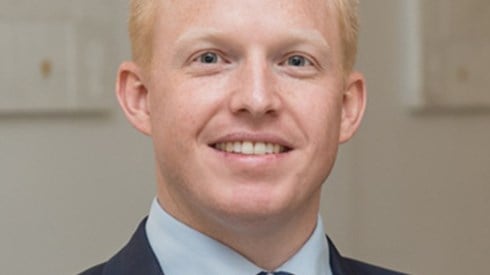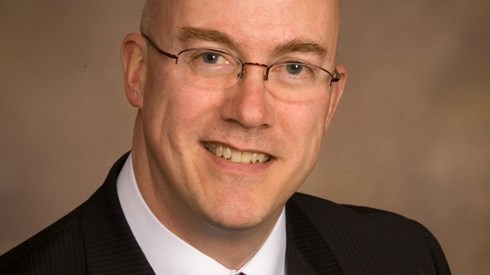Vermont's Ian Davis Is Optimistic about Captives

November 11, 2019

In 2017, Ian Davis, who previously held senior positions in Vermont's Department of Economic Development and Agency of Commerce, moved over to become Vermont's director of financial services. In that role, Mr. Davis is chiefly responsible for the marketing and business development of Vermont's captive insurance industry. Among other things, Mr. Davis is a frequent speaker at conferences to promote Vermont as a captive domicile, and he works closely with Vermont's policymakers monitoring issues related to captive insurance regulation.
As Vermont's director of financial services, what are your roles with the Vermont Department of Financial Regulation Captive Insurance Division?
Ultimately, my role is to represent Vermont and the interests of Vermont's captive insurance industry. I'm responsible for communicating the industry's priorities, articulating challenges, promoting our many achievements, and, most importantly, strengthening the state's reputation and perceptions people hold of it. All such efforts, if successful, help to ensure a beneficial business environment for captive expansion and relocation, resulting in increased revenues for the state and high-quality, high-paying jobs for Vermonters.
What was behind the decision to create your position?
Early on, our domicile's founders recognized, and rightly so, that if they wanted Vermont to compete on a global scale and attract captive business to the state, they were going to need to devote resources to marketing and promoting the state. So, for a number of reasons, including conflict of interest considerations, those responsibilities have always been housed within Vermont's Department of Economic Development and are separate and distinct from the regulation of captives.
What do you enjoy most about your job?
Without a doubt, my favorite part about working in the captive industry is the relationships. In the 3 years I have been in the industry, I have been fortunate to have met countless people from all different backgrounds and areas of expertise. Many of them I count not just as colleagues but as friends as well.
Last year, Vermont had 580 licensed captives, making the state the largest, by far, domicile in the United States. How do you explain the tremendous growth Vermont has achieved as a captive domicile?
There are several reasons. Vermont, as you know, has been at the forefront of the captive industry for nearly 40 years, which, I think, has been due in large part to our regulatory approach, the experience of our regulatory team, and the robust infrastructure of the service providers that exists in the state.
I also would credit our success to the consistent commitment of state officials and the Vermont legislature to captive insurance, as well as the ongoing involvement of captive parents in the state's captive insurance industry.
Do you see the growth continuing?
Absolutely. Captives continue to play an important role in the insurance marketplace. As more organizations look to captives to manage new and emerging risks, Vermont will be there to help support those efforts.
Looking not just at Vermont, do you see captive growth in general continuing and, if so, why?
I think captives remain an attractive option for companies looking for alternative ways to finance and manage corporate risk. I am optimistic that the captive industry will continue to grow both in terms of net new captive growth as well as existing captives expanding their coverage, be it medical stop-loss, property, or new and emerging risks, like cyber. The overall awareness of the captive insurance marketplace has grown exponentially since its inception, and captives are here to stay.
Will the changes state lawmakers in Vermont make in the years ahead keep Vermont's position as the largest captive domicile in the United States?
Updating our captive law is an annual tradition in Vermont. We are constantly evaluating our captive laws to make sure they are continuing to meet the needs of both existing and prospective captive companies that we think will be a good fit in Vermont.
With regard to specifics, I can't really predict the future or what regulatory proposals might arise. But I can say that Vermont has a nearly 40-year track record of working in close partnership with our state's elected officials to ensure our laws and regulations remain at the forefront and keep pace with this dynamic industry.
What kind of work have you done with the Vermont Captive Insurance Association (VCIA)?
The VCIA plays a critically important role in the captive insurance industry, both here in Vermont and across the globe. We are constantly working together and with their membership, many of whom are captive owners, to find ways to grow Vermont's captive industry, to help educate the broader insurance marketplace, and to strengthen the industry. As the largest trade association for captive insurance in the world, we partner with them regularly to ensure that state and federal laws are monitored, that our collective voice is represented and heard, and to make sure that this vibrant industry is growing and strong. We also collaborate with them on professional education and business development opportunities as well as to help grow the industry here in Vermont.
How do you interact with state lawmakers?
Certainly, one of my main responsibilities is keeping our state lawmakers up to date and informed on all matters pertaining to Vermont's captive insurance industry, such as state or federal policy that may directly or indirectly impact captives, licensing activities, etc.
We have a very close working relationship with our state legislature and elected officials. Captives are a key economic development sector for the state, and we strive to keep them as up to date and informed as possible.
How do you stay up to date on captive issues?
Captives are my only business. My job is to stay current on all things captive-related, be it regulatory, tax, market trends, talent issues, emerging technology, etc. So, I eat, sleep, and breathe all things captives and am constantly monitoring the news in the trade press.
Another big way we stay up to date is through regular communication with our captive colleagues, including our captive owners and prospective captive companies who are speaking with us on a daily or weekly basis.
Do you think we truly are in the hard market cycle, and, if not, how do prior hard markets compare to what we have now?
I do think we are across certain lines and in certain industries. There are numerous reports and data to support that. Yes, we do tend to see a greater number of captives licensed in hard markets. That is not to say we are expecting an influx, but we certainly are anticipating that could mean a greater number of licenses in the coming years ahead.
What did you do professionally before assuming your current role?
Prior to joining Vermont's captive insurance industry, I worked within the Department of Economic Development, helping to represent and grow the state's initiatives with an emphasis on business recruitment, retention, and expansion. In many ways, my prior experiences were similar to my current role in that I represented Vermont and our economic development offerings to companies both within the state and externally as well.
Are you becoming more involved with employers in Mexico?
We announced back in August that we will be doing a trade mission to Mexico City in March of 2020. This idea came about really through the VCIA's membership and their road show committee task force. It is our understanding, both from what we have heard and what we are seeing in Latin America, that the insurance marketplace there is becoming more sophisticated and is currently viewed as an emerging market in the captive insurance industry. We are committed to going there in March to help ensure that the captive concept is well understood and communicated and to let them know the benefits of being in a reputable onshore jurisdiction like Vermont.
(Photo of Mr. Davis, above, is courtesy of the Vermont Department of Economic Development.)
November 11, 2019

